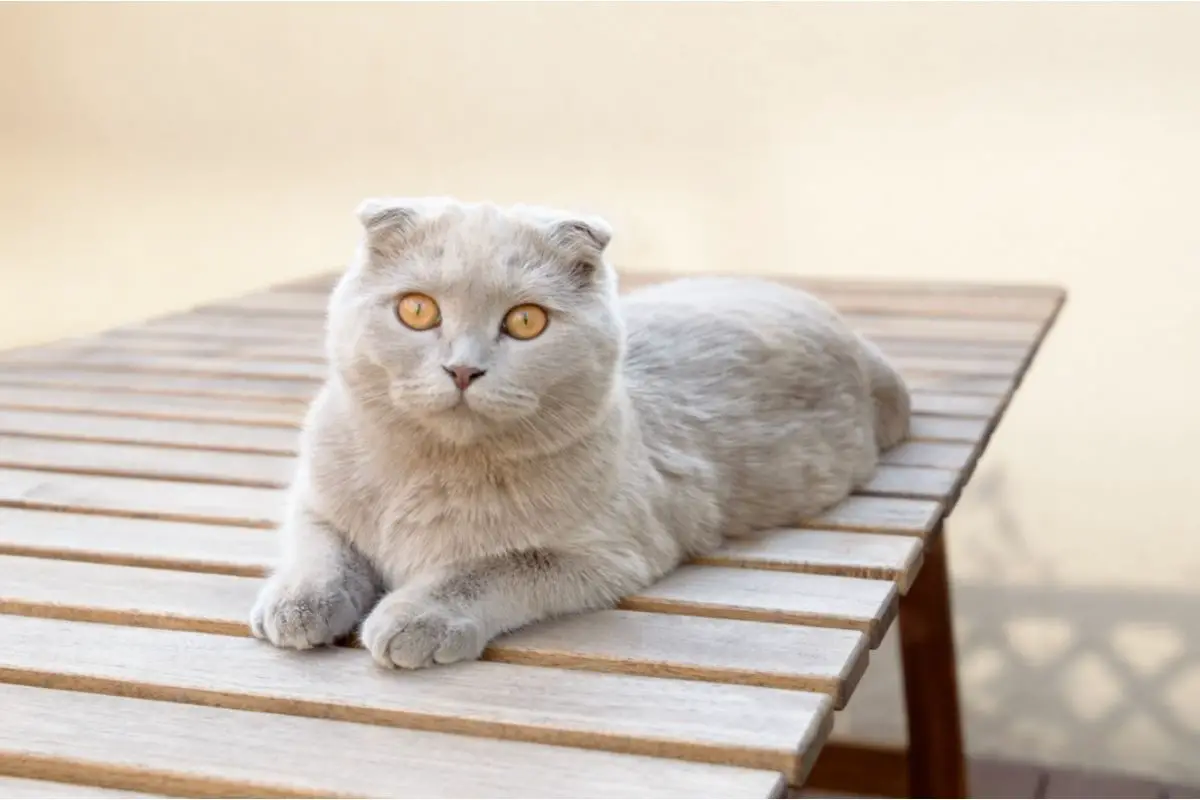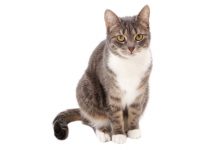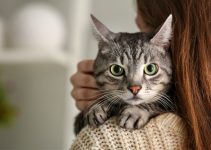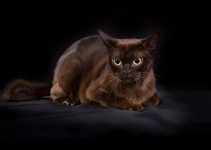Scottish Fold Munchkin cats are known for folded ears and extremely short legs.
If you’re looking to learn more about these types of cats, you’re in the right place.
Today, I will cover some key information about the Scottish Fold Munchkin cat.
Let’s get started.
Contents
What Is A Scottish Fold Munchkin Cat?
The Scottish Fold Munchkin cat was created by crossing two cats, the Scottish Fold and the Munchkin, resulting in a unique hybrid cat.
The Scottish Fold cat was first produced in Dundee, Scotland, and is a relatively rare breed of cat.
This is largely due to the fact that Scottish Fold cats are not bred together to make more cats due to ethical concerns.
Instead, Scottish Fold cats are bred with either American or British shorthair breeds of cats. As a result, not all kittens in their litter have folded ears.
The fold in their ears is due to a genetic mutation, but the breed can hear perfectly well, just like any other breed of cat.
Although Scottish Folds are renowned for these signature folded ears, they’re actually born with straight ears, with the fold developing when the kitten is around 18 to 24 days old.
These cats are hugely popular due to the cute combination of their folded ears paired with their munchkin legs.
What You Need To Know About The Scottish Fold Munchkin Cat
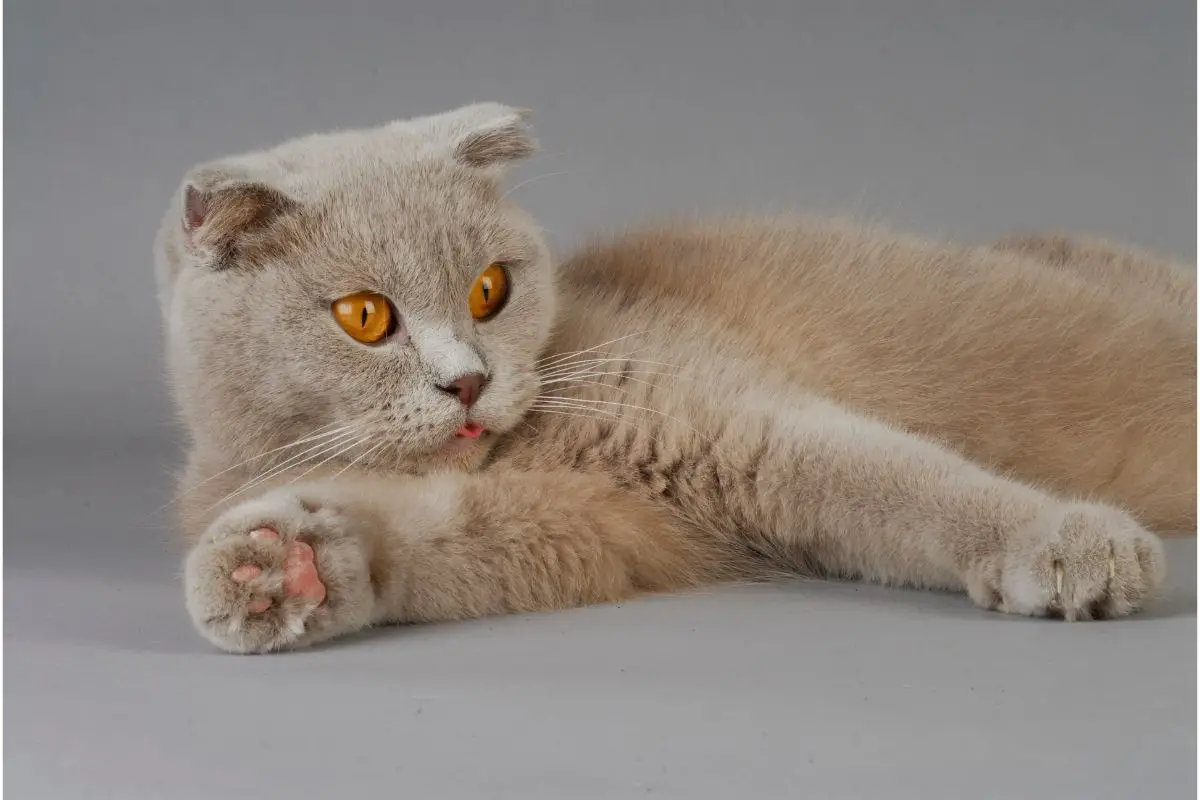
In terms of personality, the Scottish Fold Munchkin cat is a very friendly breed of cat, making them hugely popular.
These cats make great family pets and need stimulation, meaning they are great to have in a wide range of homes with and without animals.
They are a very loving and affectionate breed, meaning they thrive from lots of attention and being played with throughout the day.
They are much more active than lap cats and love social interaction with other animals and humans. As a result, when you have guests over, they’re sure to want to get involved with all the fun!
That being said, when you are handling these types of cats, a gentle hand is required. This is especially true with regard to their tails, as they can be particularly stiff.
This is why you should always keep one eye on your children around your cat to ensure that they are being gentle.
When you go to look at a Scottish Fold Munchkin cat, it’s good practice to test the flexibility of their tails but it is essential that you’re gentle in the process. Failure to do so can result in you hurting the cat.
With regard to their ears, there are three types of folds that you should be aware of. These folds are split into three categories: Single fold ears, double fold ears, and triple fold ears.
A single fold is when only the tip of the ears are folded over. Second up we have the double fold, when around half of the ear is bent. Lastly, a triple fold is flat against your cat’s head.
So, what else should you be aware of when it comes to these cats?
Grooming
Both Munchkins and Scottish Folds are available in a large variety of colors and coat types at different lengths, so this cat can be almost any color and be short, medium, or long-haired.
Your grooming routine will depend on what type of hair your specific cat has. This is also true of the amount your cat will shed.
Long-haired cats may require more grooming than short-haired cats to prevent knots from forming in their fur.
This might mean that you need to brush them a minimum of once a week to stay on top of it. However, cats typically do a good job of grooming themselves.
Feeding
It is thought that dry cat food can worsen Feline Polycystic Kidney Disease. Bearing this in mind, when it comes to feeding this cat, wet or an alternative food recommended by their veterinarian is the best bet.
In addition to this, you should also take care when it comes to switching up their food.
When you do want to make the switch, continue to feed them their old food and begin adding the new food gradually to their old food.
This slow change is essential, as changing their diet gradually can help to avoid any gastrointestinal upset.
In addition to their food, you should also make sure that a Scottish Fold Munchkin cat has access to clean water to ensure they remain hydrated throughout the day.
Care
These cats are highly playful and energetic, so need both physical and mental stimulation throughout the day in order to remain happy.
This breed is known to become lonely if they are ignored by their caregivers, so you shouldn’t adopt a Scottish Fold Munchkin cat if you don’t have the time to give it the attention that it requires.
You will need to ensure that a Scottish Fold Munchkin cat is stimulated with a variety of different toys in your home.
These toys can range from balls, to feathers, to lasers, just make sure that they are mentally and physically stimulated.
Health Conditions
You should also be aware that the Scottish Fold Munchkin cat is susceptible to certain health conditions that are present in either the Scottish Fold cat and the Munchkin cat or both.
These conditions include but are not limited to:
Bone & Cartilage Abnormalities (Osteochondrodysplasia)
As I briefly mentioned above, the Scottish Fold cat has a genetic mutation that affects the development of cartilage.
A visible manifestation of this is obviously their bent ears, giving the cat its characteristic appearance everyone knows and loves.
Along with their ears, this mutation also causes other severe bone and cartilage abnormalities, which often results in arthritis.
You will need to ensure that you’re carefully examining your cat as they grow, and notice any changes in their activity levels that could relate to the condition.
Arthritis
Arthritis is a common condition that causes the joints in the body to become stiff and inflamed, most commonly affecting the legs and the spine. The result is very painful and makes moving uncomfortable.
The way you are likely to notice whether your cat is suffering from arthritis is if they begin limping, have a strange stance, or are likely to be moving differently from how they used to.
They may also become less active and could be less up for playing with you.
Feline Polycystic Kidney Disease
Feline Polycystic Kidney Disease condition in cats that results in various cysts forming inside of the kidneys.
Lordosis
Lordosis is a condition that is characterized by a cat’s spine curving and is situated along the cat’s lower back.
